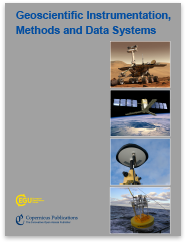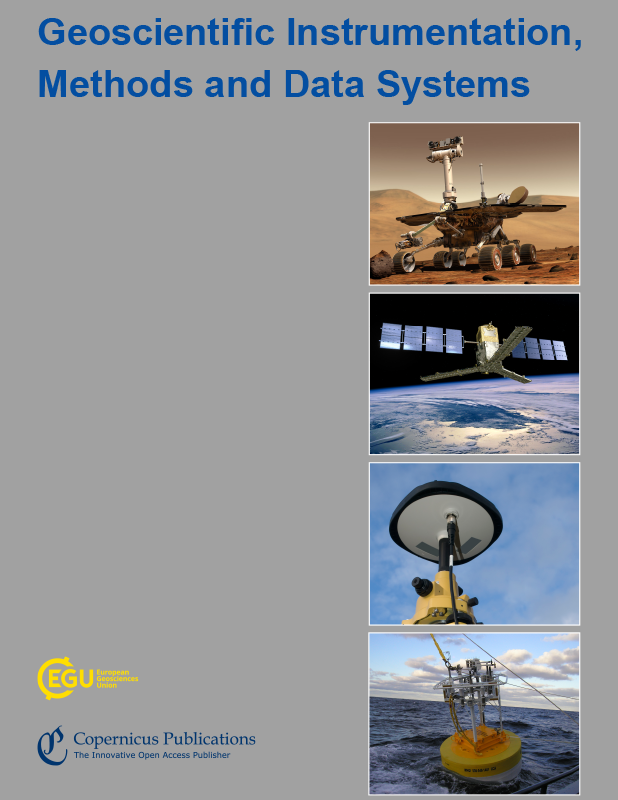
Geoscientific Instrumentation, Methods and Data Systems (GI) is a not-for-profit open-access interdisciplinary electronic journal for swift publication of original articles and short communications in the area of geoscientific instruments. It covers four main areas: (i) atmospheric and geospace sciences, (ii) Earth science, (iii) ocean science, and (iv) urban environmental monitoring. A unique feature of the journal is the emphasis on the synergy between science and technology that facilitates advances in GI.

Journal metrics
GI is indexed in the Web of Science, Scopus, Google Scholar, etc. We refrain from displaying the journal metrics prominently on the landing page since citation metrics used in isolation do not describe importance, impact, or quality of a journal. However, these metrics can be found on the journal metrics page.
News
Recent papers
Highlight articles
Notice on the current situation in Ukraine
To show our support for Ukraine, all fees for papers from authors (first or corresponding authors) affiliated to Ukrainian institutions are automatically waived, regardless if these papers are co-authored by scientists affiliated to Russian and/or Belarusian institutions. The only exception will be if the corresponding author or first contact (contractual partner of Copernicus) are from a Russian and/or Belarusian institution, in that case the APCs are not waived.
In accordance with current European restrictions, Copernicus Publications does not step into business relations with and issue APC-invoices (articles processing charges) to Russian and Belarusian institutions. The peer-review process and scientific exchange of our journals including preprint posting is not affected. However, these restrictions require that the first contact (contractual partner of Copernicus) has an affiliation and invoice address outside Russia or Belarus.


